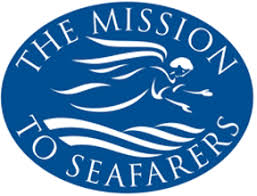The Mission to Seafarers reveals insight into how seafarers are affected by Covid-19 and the need for the industry to provide support
Posted on: 5 May 2020
The latest Seafarers Happiness Index report, published today by The Mission to Seafarers, has revealed real insight into the lives of seafarers during the global Covid-19 pandemic. The report has revealed that seafarer happiness is lower, with clear concerns about current safety and welfare provision for those serving at sea. Seafarers are urgently calling for improved connectivity between shore and sea and the need for greater support across the industry during this unprecedented time.
The index, undertaken in association with the Shipowners’ Club and Wallem Group, is a tool for measuring the experiences of seafarers across the global maritime industry. As expected, the latest report has provided a platform for seafarers to share their experiences of life at sea during the pandemic, with overall seafarer happiness dropping to 6.30 in Q1 2020, down from 6.39 since Q4 2019. This is a special Covid-19 report which focuses on workload, shore leave and interaction of crew on board, as these were the main areas raised by seafarers within this quarter’s survey.
Limited shore leave taking its toll
Responses regarding shore leave show that seafarers are not being able to benefit from welfare facilities ashore, which in turn hugely impacts their mental wellbeing. Even when shore leave is possible, the cost of shore passes, access to transport and health fears can impact the decision to go ashore. Additionally, given ships are reduced to minimum crewing levels, taking shore leave requires cover, forming further issues regarding logistics. Many seafarers are prioritising completing their contract and getting home rather than getting ashore when in port, further emphasising the need to ensure vessels are suitable places to spend extended time.
There are reports of social conflicts rising onboard when it comes to the ability to enjoy downtime and the spaces and provisions for relaxation, particularly given the diverse nationalities onboard. Onboard camaraderie is tested when seafarers feel under stress and existing tensions are exacerbated, particularly as more seafarers worry about family at home, and feel disconnected from loved ones. This stress makes it harder to interact onboard and puts further strain on relationships with fellow crew members.
Growing workload and contract extensions
Additionally, this quarter’s results indicated that crews are experiencing growing workloads, particularly exacerbated as many seafarers are having to stay onboard for longer than their normal contracts owing to COVID-19 restrictions on movement. There is a sense of detachment between ship and shore, with numerous criticisms about the way in which work and expectations are managed and the need to keep vessels to “hospital standards” of hygiene, with the relentless struggle to keep vessels virus free.
Growing concerns over seafarer health and wellbeing
Across all responses, the call from seafarers was clear. The combination of increased workloads, extended contracts and increased isolation leaves the majority of seafarers feeling stressed, anxious and exhausted. This risks undermining the quality of their work and safety standards. Seafarers need better connectivity, including internet access as a basic necessity to combat isolation and to improve the connection between sea and shore to ensure seafarers feel protected by the decisions made on shore. Seafarers also voiced anxiety about shore staff boarding vessels given the risk of infection. The industry has a responsibility to ensure seafarers are and feel protected and safe within the workplace.
Steven Jones, Founder of the Seafarers Happiness Index, commented: “This report highlights how essential it is to have a survey where seafarers can share their views. The industry can gain real insights into how we can improve support for our seafarers, particularly in these challenging times. It is paramount that industry calls for seafarers to be recognised as key workers are acted upon and that we support those who are maintaining our global supply chains. Protecting our seafarers is key to protecting our industry. It is our duty and responsibility to provide them with all the tools needed to be safe, particularly while many are prevented from returning home.”
Louise Hall, Director – Loss Prevention at the Shipowners’ Club commented: “This pivotal edition of the Happiness Index highlights the pressures and fears of those serving on board during the Covid-19 pandemic. It is our belief, that by collecting and sharing this information, we are helping to inform the many facets of the maritime industry of the critical concerns of our seafarers at this most challenging time.”
Frank Coles, Chief Executive Officer, Wallem Group, commented: “The relevance and value of the index has never been more important than at this critical time. While it shows a downward trend, I am sure it is nothing to what would be reported if it was done now.”
Still a sense of pride
While this report highlights the increasingly heavy workloads and social tensions on board some vessels, it was also clear that there is pride in the work they do. Now more than ever, it is paramount that the industry puts seafarers at the heart of their decision making, ensuring vessels are put in lay-up in locations that have internet access and ports can open, where possible, to allow access to seafarers’ centres.
The Mission would like to offer its thanks to all the seafarers who contributed to the latest survey. To read the full report online, click here.




